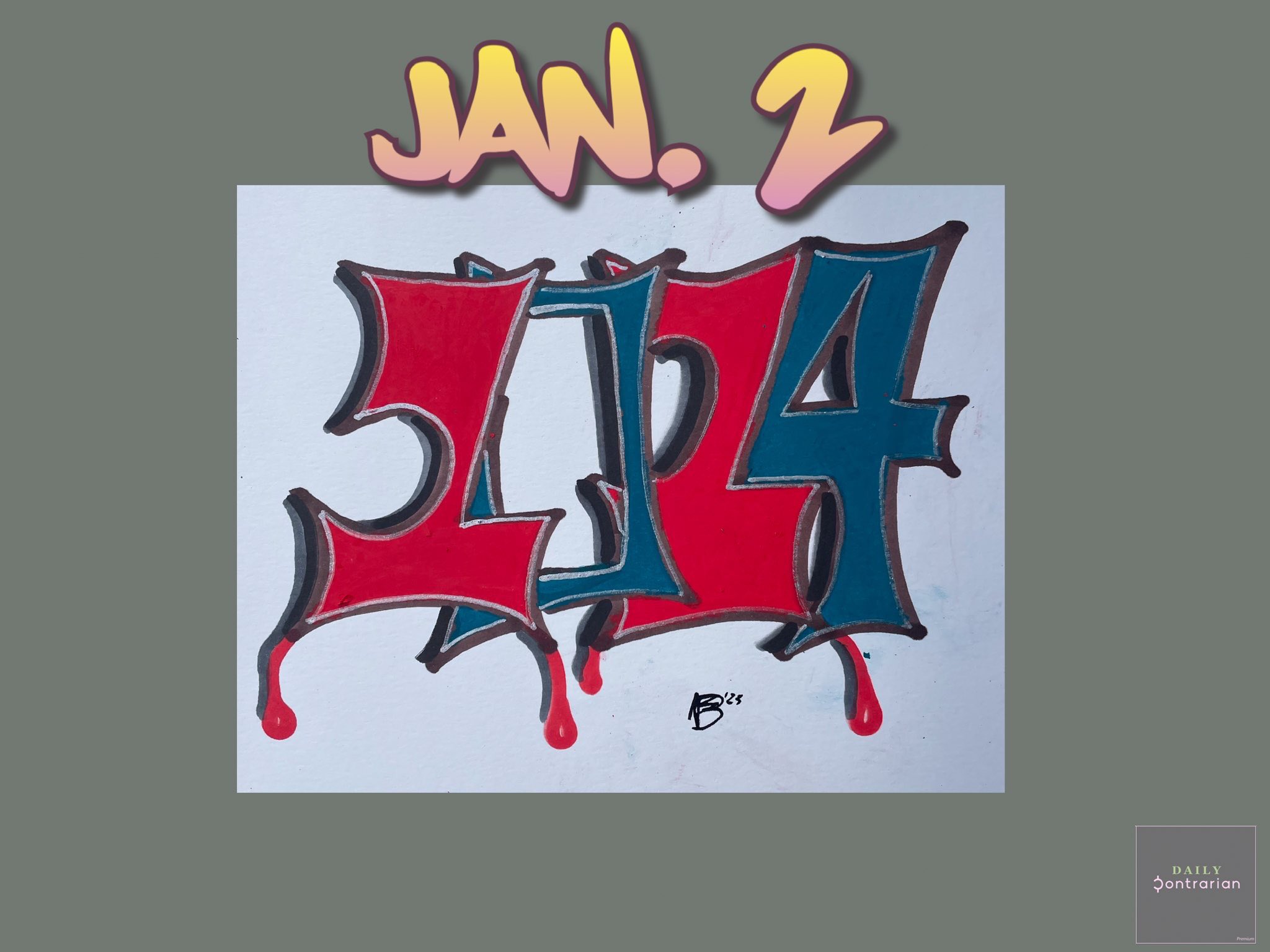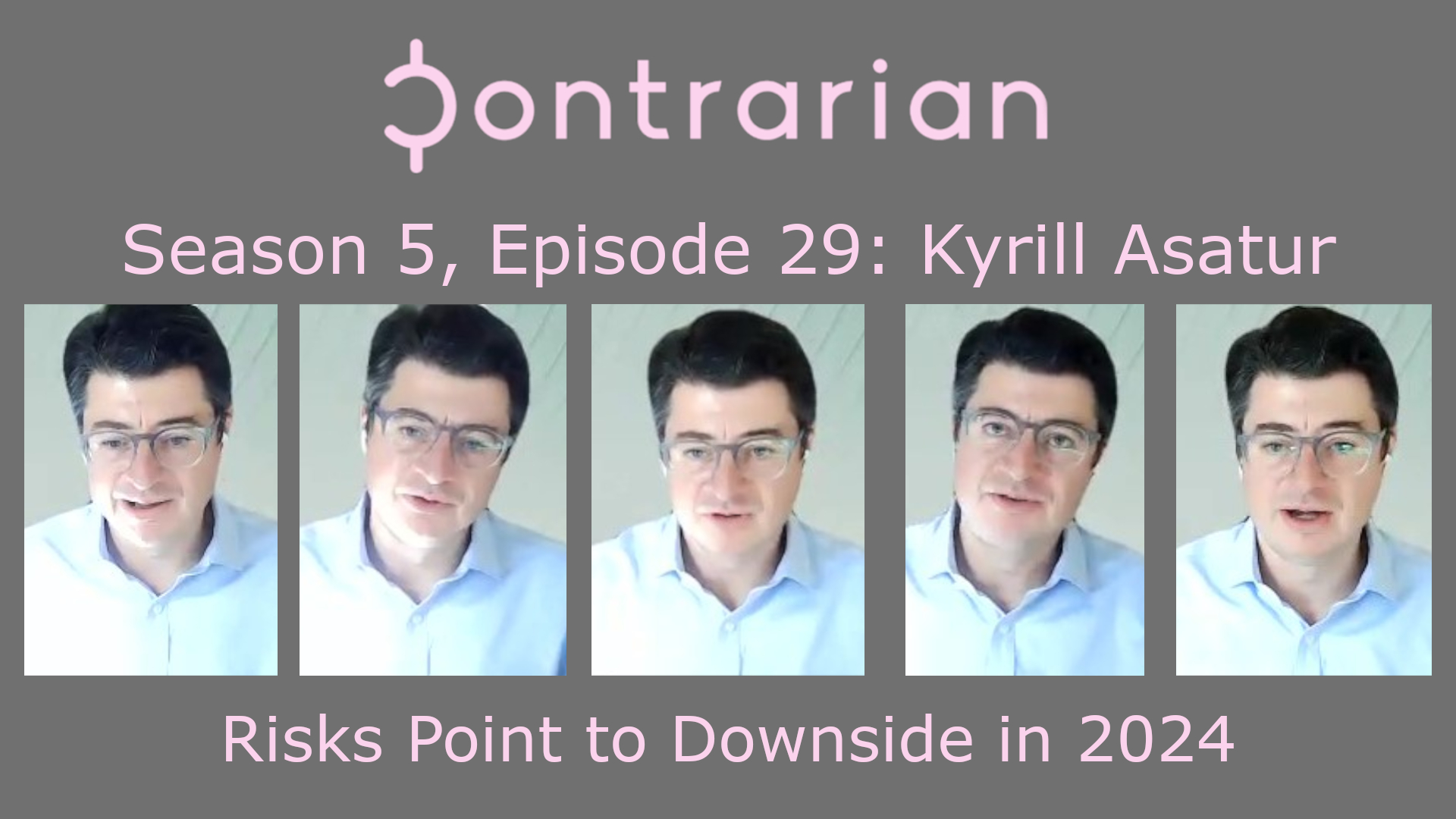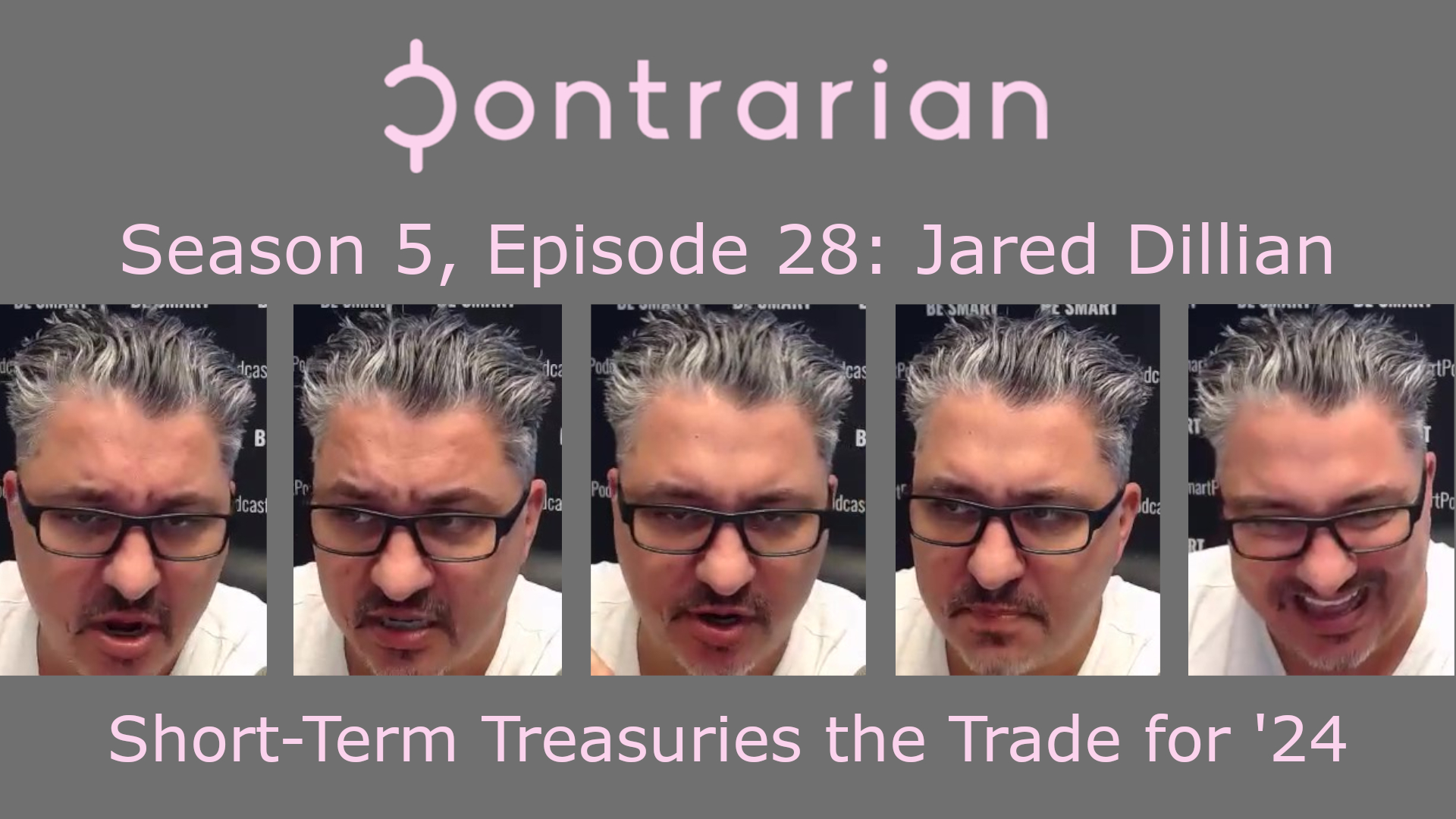This is an amended version of today’s Daily Contrarian. This briefing and accompanying podcast are made available to premium subscribers every market day morning before 0700.
What will 2024 bring? Last year at this time we were all preparing for imminent recession. This year things are far more optimistic. The venerable Wall Street Journal yesterday reported how “optimism abounds on Wall Street.” That’s the kind of thing that gives The Contrarian cause for concern.
It’s not the mother of all contrarian indicators though. Yeah, Wall Street analysts have horrific records at predicting, well, anything. But the mother of all contrarian indicators, if you must know, is the mother in law indicator.
It doesn’t have to be your mother in law (parents, taxi drivers, baristas, high school classmates, cousins, gym buddies, etc. all work), the key is for it to come from somebody who is a complete novice at investing and has zero clue about stocks or bonds — or for that matter even knows the difference between the two (or that there is a difference). When these people come out of the woodwork asking for “stock tips” then the bull market is truly on its very last legs.
We aren’t there yet. We could get there in a couple of months if the buying continues. But then, why should it? The prevailing reason provided is that the Federal Reserve is about to cut interest rates. While this would indeed provide a short-term boost to stocks, the bigger gains would likely come in the bond market.
And that’s assuming the Fed can cut rates to begin with. Remember that the Fed needs the annualized CPI to be at 2% or lower before it can declare victory over inflation. At its current level of 3.1%, it’s still a ways off. Until you get to 2% (or ideally below), the Fed runs the very real risk of igniting inflation anew — and destroying whatever is left of its credibility with it. Remember, too that Fed rate cuts are intended as economic stimulus. One could argue that they should be reserved only used in such instances. Judging by labor markets and consumer behavior, the economy is a long way from needing any kind of stimulus.
So be careful what you wish for. Yes, the economy still looks fine and that should be a positive where corporate earnings are concerned. But without a clear turn for the worse in the economy, the Fed runs a very real risk of causing all kinds of problems should it still decide to cut rates. Not just inflation, but very real concerns with the Fed’s credibility.
Listen to the audio here, courtesy of our YouTube channel:
Leave a Comment


